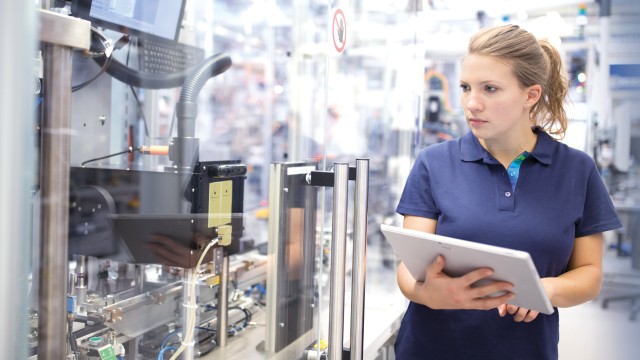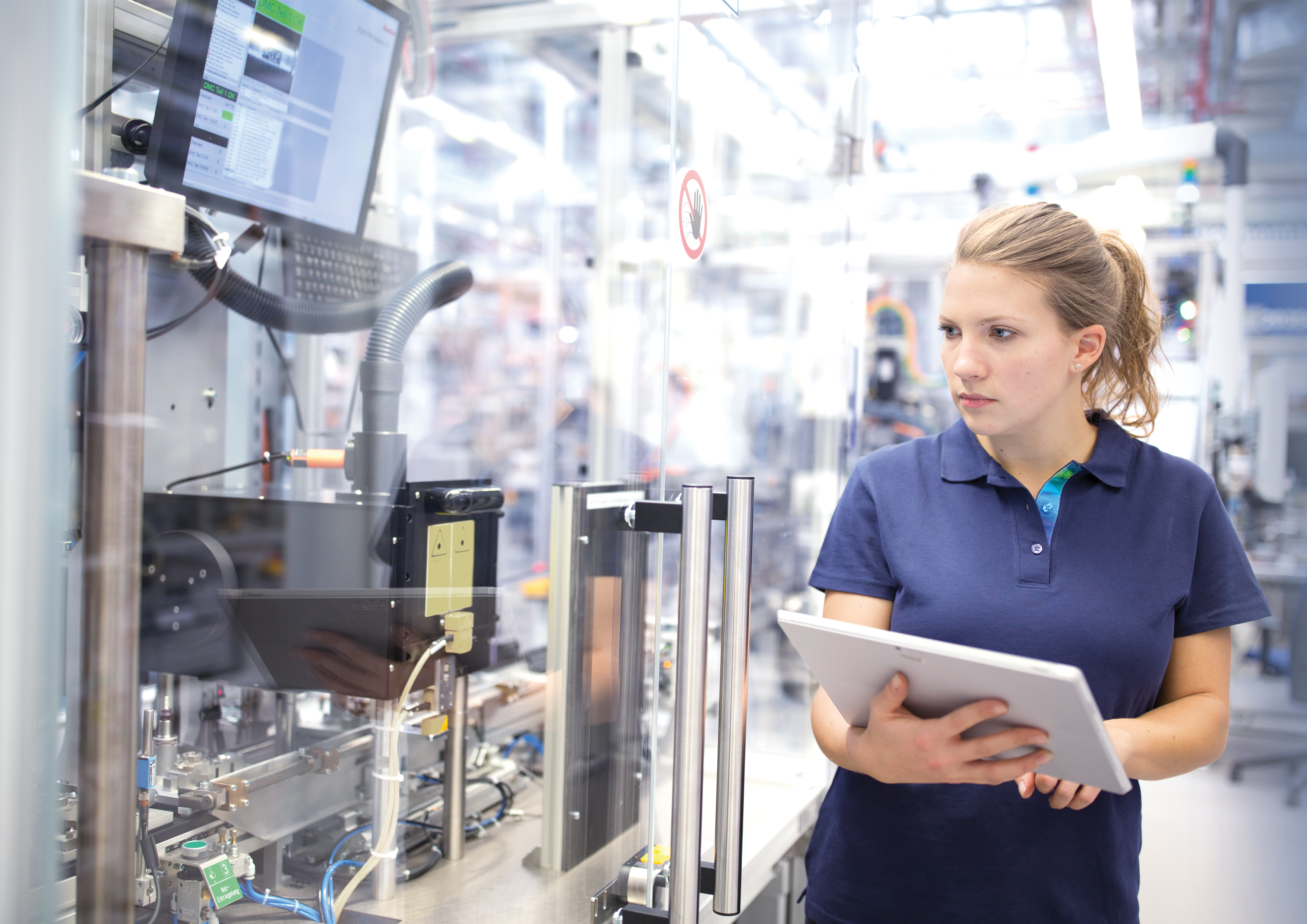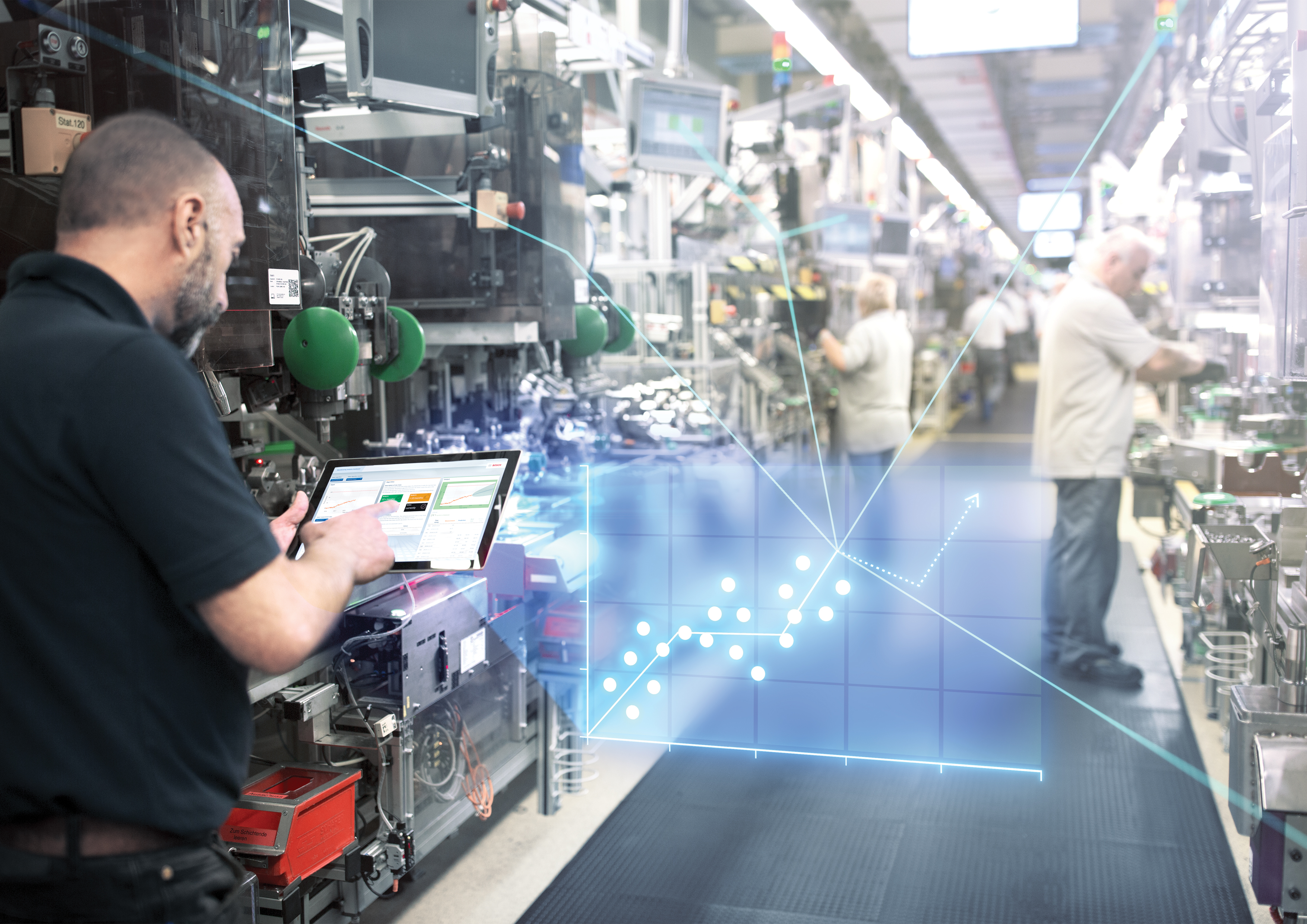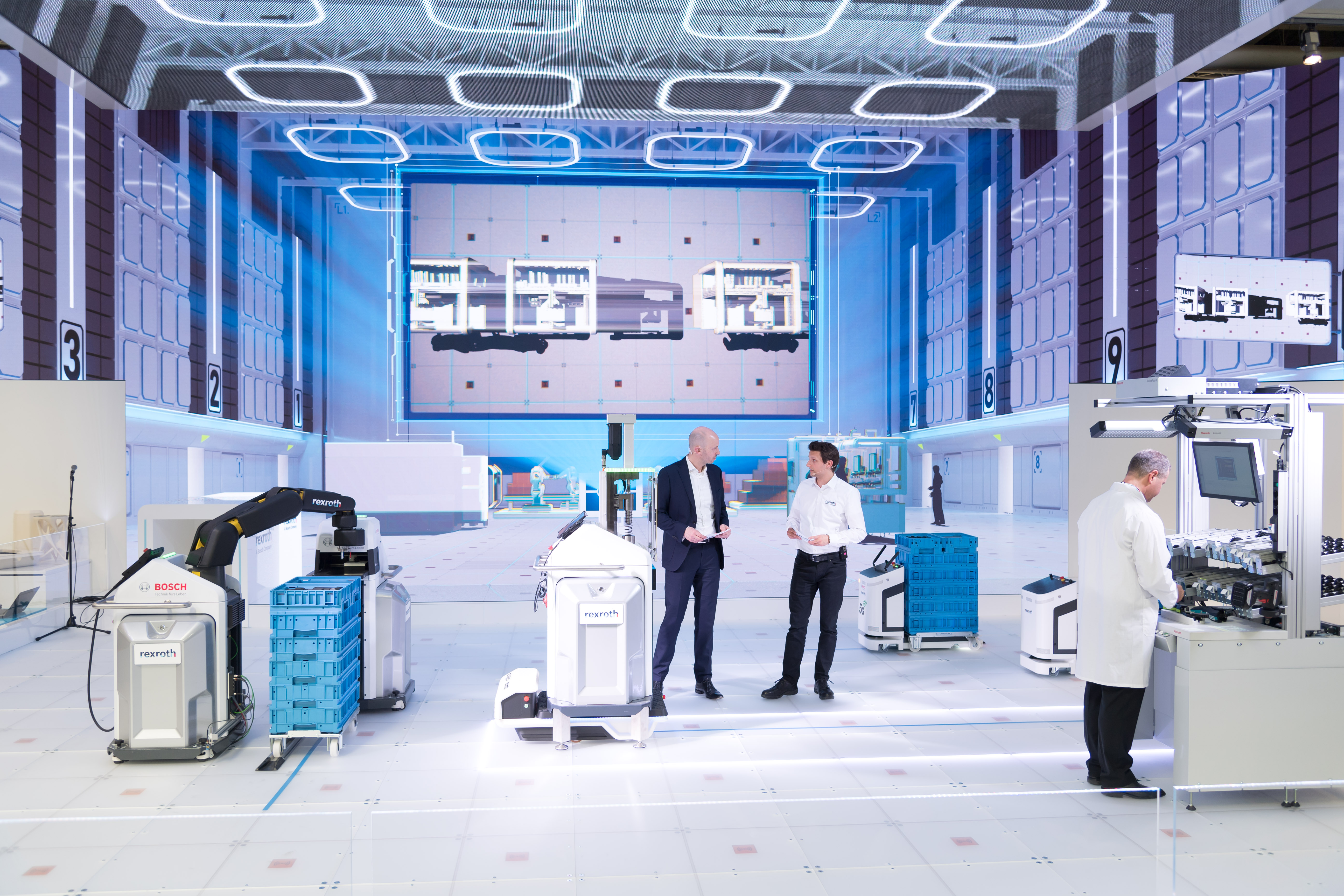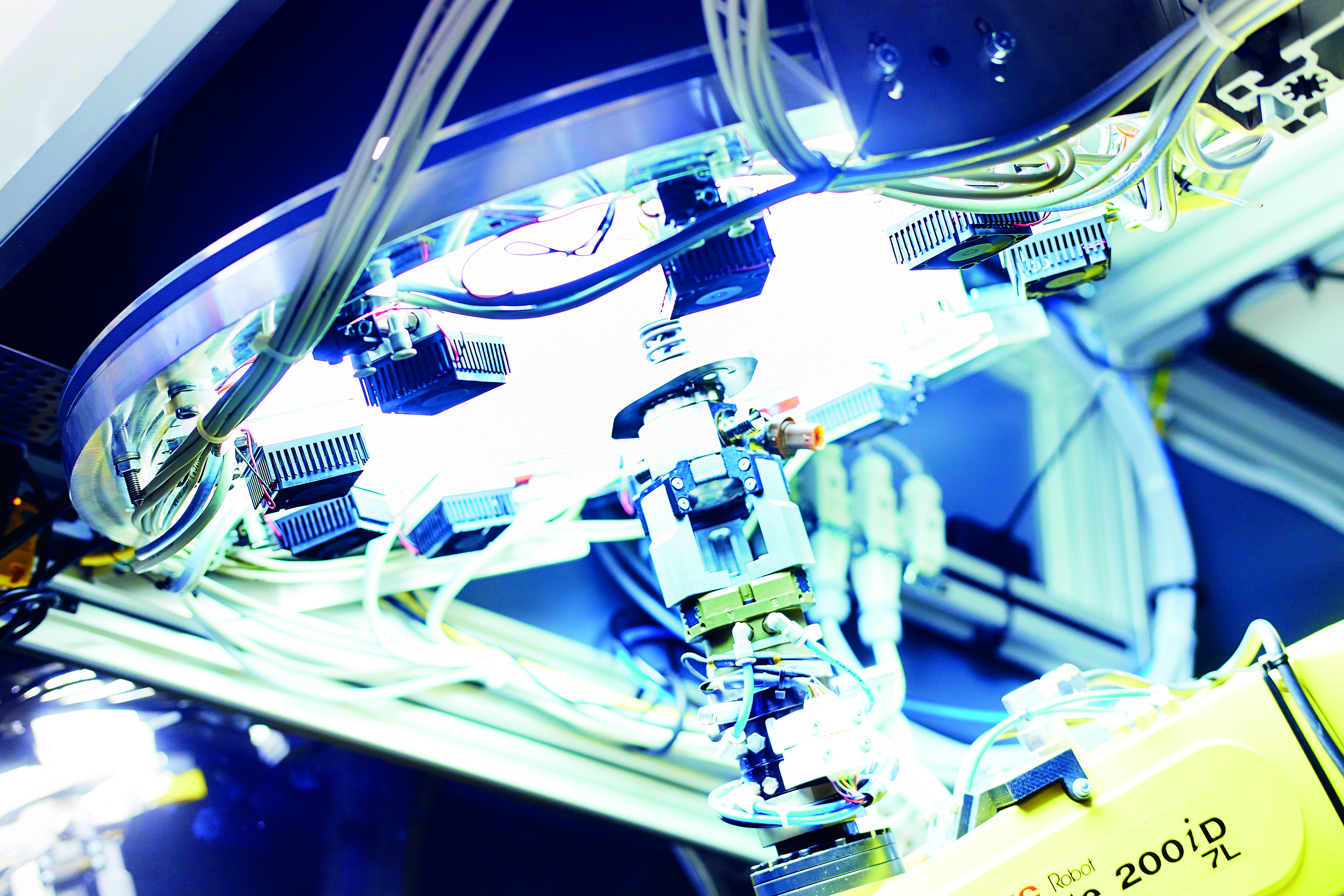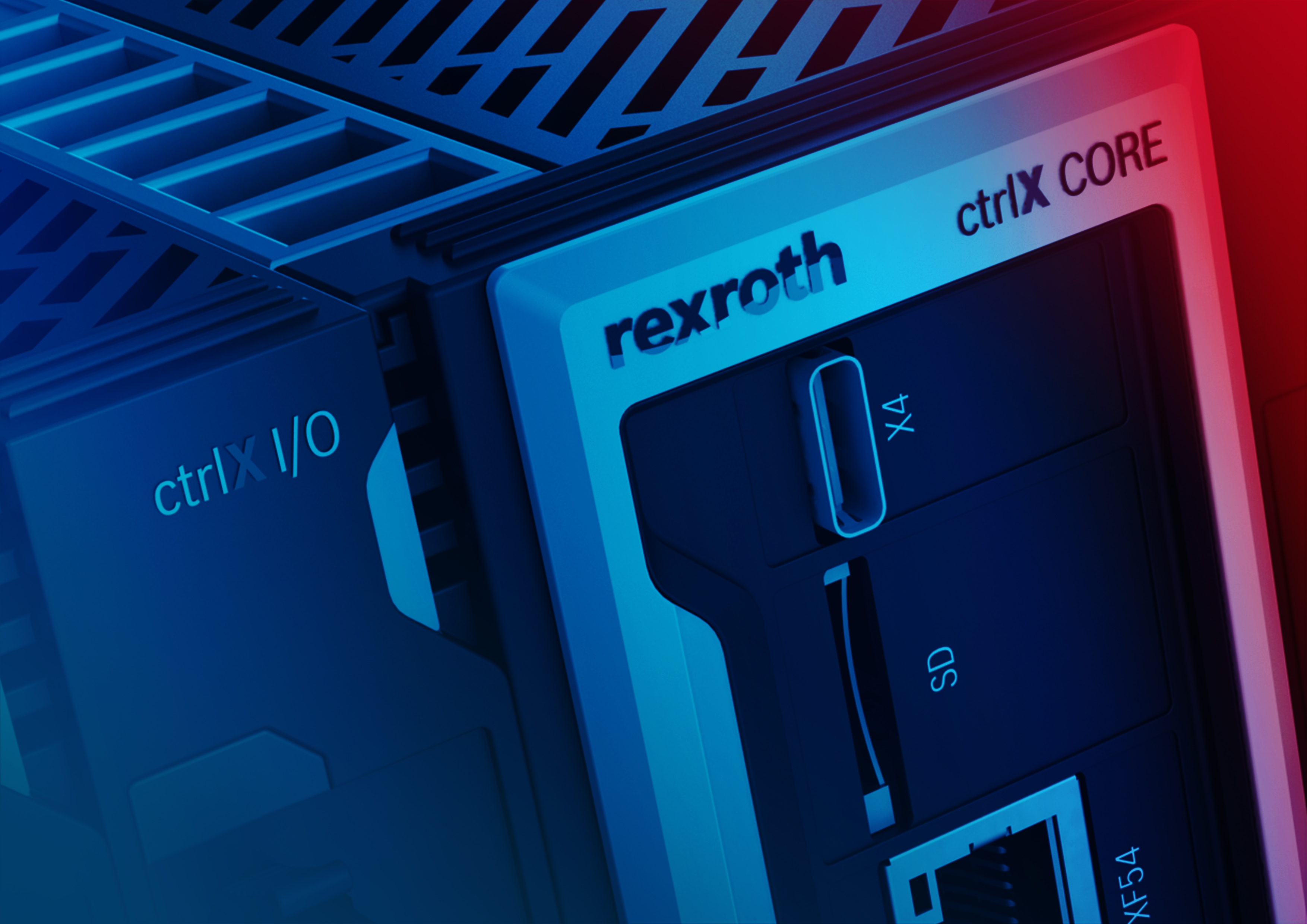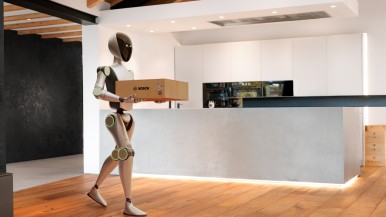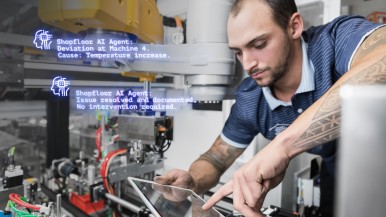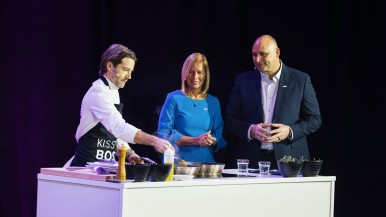Stuttgart, Germany – Crises reveal weaknesses. The coronavirus pandemic has highlighted the value of connected manufacturing and logistics. The internet of things (IoT) helps manufacturing companies react more flexibly than before to disruptions, since the utilization and condition of each individual machine can be tracked in real time, and there is transparency along the supply chain. “Especially in exceptional times such as the current crisis, connectivity makes companies less vulnerable and helps them keep an even keel,” says Rolf Najork, the member of the Bosch board of management responsible for industrial technology. For example, where the risk of infection makes physical proximity a challenge, shift handovers can be handled digitally. Digitalization enables remote monitoring and maintenance of systems and machines, with no need for a technician on site. Intelligent software can track goods and deliveries, and ensure replenishment, from any location. All this is possible thanks to Industry 4.0. Connected solutions will help make manufacturing and logistics simpler, more efficient, more flexible – and also more robust. Bosch is an IoT pioneer. The company began adding connectivity to manufacturing and logistics in 2012 – both in its own plants and in those of its customers. And this is paying off: In 2019, Bosch generated sales of more than 750 million euros with connected solutions for manufacturing and logistics – an increase of 25 percent over the previous year.
Manufacture #LikeABosch – IoT is expanding the bounds of possibility
Bosch is developing the factory of the future. In this endeavor, the company is relying on Industry 4.0. Once Bosch has tested and validated products in-house, it markets them to other companies. The portfolio ranges from software packages for manufacturing and logistics, to robots that make and deliver parts, to workplace assistance systems. In its development work, Bosch is guided by clear principles: The products and solutions have to be rapidly adaptable to any task. The are intuitive to use, open to and compatible with third-party applications, and work efficiently and economically. Manufacture #LikeABosch means: business success, technological flexibility, ecological sustainability, and smart connectivity. The campaign puts an unconventional spin on how Bosch is making factories fit for Industry 4.0.
About Bosch
The Bosch Group is a leading global supplier of technology and services. It employs roughly 418,000 associates worldwide (as of December 31, 2024). The company generated sales of 90.3 billion euros in 2024. Its operations are divided into four business sectors: Mobility, Industrial Technology, Consumer Goods, and Energy and Building Technology. With its business activities, the company aims to use technology to help shape universal trends such as automation, electrification, digitalization, connectivity, and an orientation to sustainability. In this context, Bosch’s broad diversification across regions and industries strengthens its innovativeness and robustness. Bosch uses its proven expertise in sensor technology, software, and services to offer customers cross-domain solutions from a single source. It also applies its expertise in connectivity and artificial intelligence in order to develop and manufacture user-friendly, sustainable products. With technology that is “Invented for life,” Bosch wants to help improve quality of life and conserve natural resources. The Bosch Group comprises Robert Bosch GmbH and its roughly 490 subsidiary and regional companies in over 60 countries. Including sales and service partners, Bosch’s global manufacturing, engineering, and sales network covers nearly every country in the world. Bosch’s innovative strength is key to the company’s further development. At 136 locations across the globe, Bosch employs some 87,000 associates in research and development.
The company was set up in Stuttgart in 1886 by Robert Bosch (1861–1942) as “Workshop for Precision Mechanics and Electrical Engineering.” The special ownership structure of Robert Bosch GmbH guarantees the entrepreneurial freedom of the Bosch Group, making it possible for the company to plan over the long term and to undertake significant upfront investments in the safeguarding of its future. Ninety-four percent of the share capital of Robert Bosch GmbH is held by Robert Bosch Stiftung GmbH, a limited liability company with a charitable purpose. The remaining shares are held by Robert Bosch GmbH and by a company owned by the Bosch family. The majority of voting rights are held by Robert Bosch Industrietreuhand KG. It is entrusted with the task of safeguarding the company’s long-term existence and in particular its financial independence – in line with the mission handed down in the will of the company’s founder, Robert Bosch.
Additional information is available online at www.bosch.com, www.bosch-press.com.
